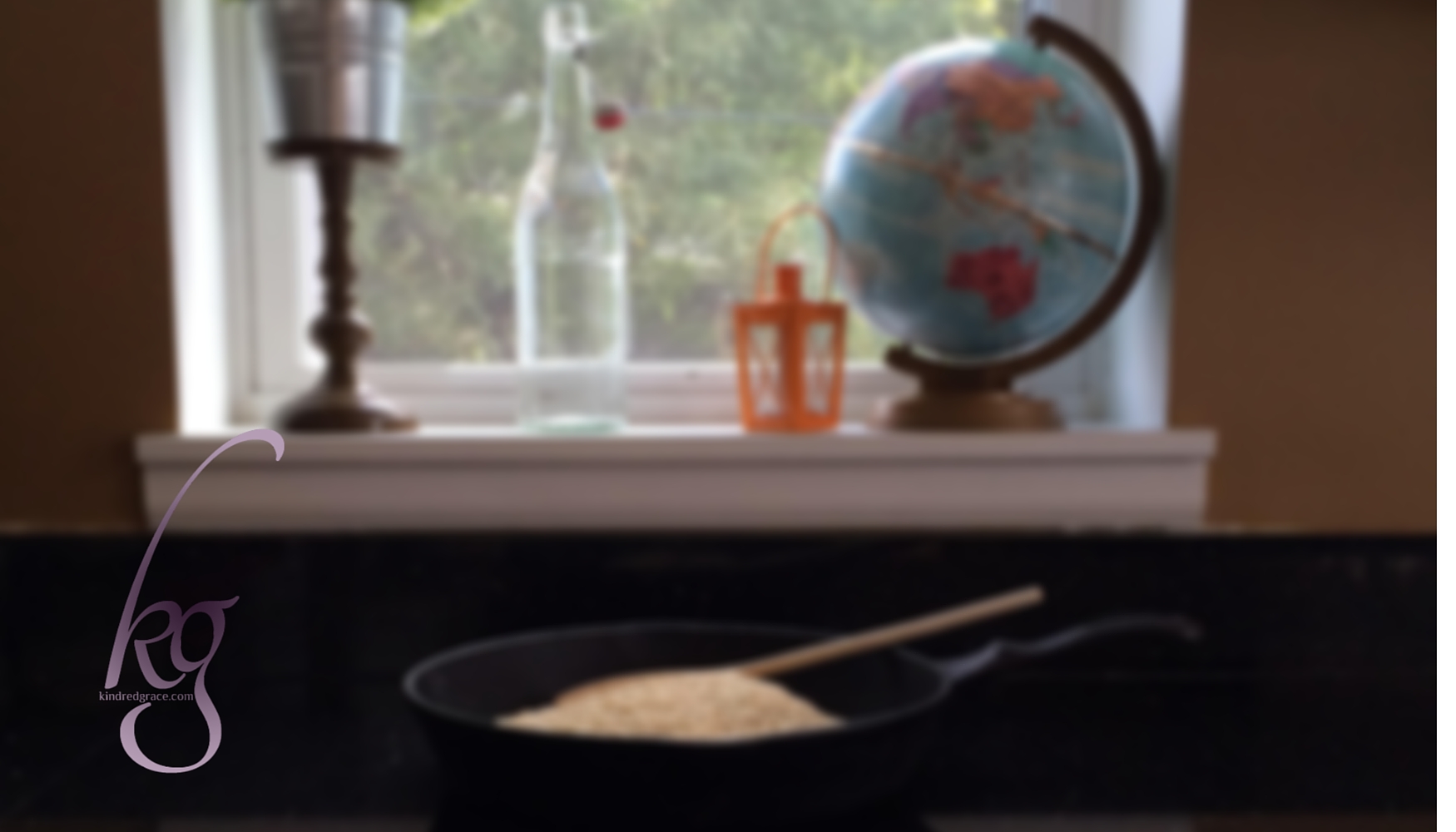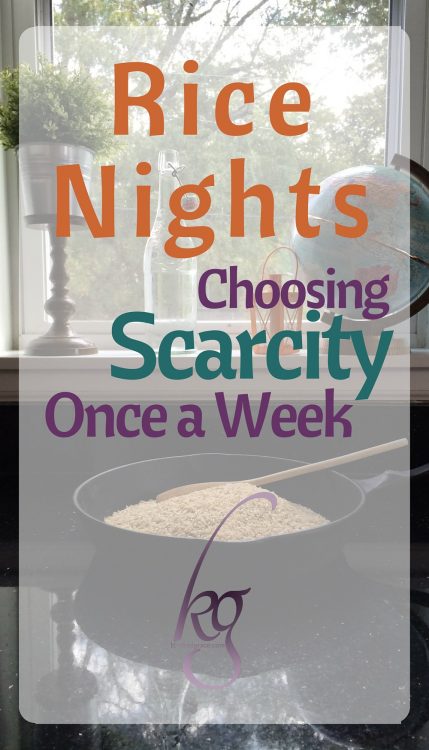Rice Nights: choosing scarcity once a week
Disclosure: This post contains affiliate links which won’t change your price.
I had a light bulb moment while listening to a friend share about a missions conference where the conference goers were shocked and disgruntled to find a scheduled “authentic meal” to be a simple bowl of rice. I was instantly intrigued by the idea: I would give my kids a rice night. We would eat nothing but rice and water. I would let them ponder how much they’ve been given and use that meal to focus on a reality outside of theirs.
Before you jump to the conclusion that I am some sort of bleeding heart humanitarian who never sets foot in her kitchen because I’m serving dinner at homeless shelters, let me set the record straight: I am a self-professed foodie. My best friend and I meet for coffee on Friday mornings with the sheer purpose of meal planning for the week, I have 1,116 food pins on my Pinterest boards, and I am not afraid to admit that I dearly love to eat. I spend an enormous amount of time in our kitchen: I love sharing life with others and what better way than at the table, over a shared meal? But I liked this idea of stopping to think how the other half lives too much to let it go.
And rice nights were born.
Once a week, we pause from great food and happy table chatter to eat a simple bowl of rice. That’s it.
My kids are some of the most open-minded eaters I know–and they truly like rice–so it wasn’t difficult to get them to eat it. What struck me initially was how much they ate and how hungry they would be later. Of course, I could just give them more. For us, as Americans, it is an object lesson. We can eat our rice bowl and then raid the fridge later or hit the drive-thru, but that’s not everyone’s option.
Sometimes we sit on the floor to eat, sometimes by candlelight; the lack of interest in the food we are eating drives interesting conversation. Often we choose this time to let our children watch various news updates about world events that might be upsetting or disturbing or even glossed over: the earthquake in Nepal, for example. Our rice night is a slower, protected environment for them to absorb tragedy and we can help them process as we discuss.
On my first trip to South Africa, we visited a tiny home in the middle of a township where children who were caring for sick family members could come for respite care. These little people were almost-orphans: they sat around little green tables and greedily and gratefully ate warm bowls of an undistinguished grey porridge. These kids have the weight of the world on their shoulders, watching the reality of sin and death play out right before their eyes. A bowl of food they didn’t need to find or prepare was an enormous gift to them. I didn’t want to return to my life in America with that typical post-mission trip attitude we see so often: there are starving children in refugee camps and you are buying organic apple juice boxes? Such waste!
We have our own version of refugee camps here, our own children neglected not because we are dead, but because we are chasing success. There’s far too much pain here for me to draw the conclusion that the only despair is in third world environments; we disguise it well, though, underneath the layers of all of our wealth. When I stop and look at a bowl of rice I am forced to think about the inadequacy of humanity: inadequate food, yes, but also our utter inability to find joy and meaning apart from Christ.
There are moments when I’m stopped by the oddity of what I’m doing: scarcity isn’t an American virtue. Plain rice on my child’s plate? Where is the color, nutrition, protein, fun? It’s not there and the absence makes me pause. Even when we rush to clean up our simple meal to get out the door to soccer (a sport for children who have the privilege of playing instead of worrying where to find their next meal) – I have been reminded, they have been reminded that the world is larger than their safe small town where affluence can equal apathy.
And what is affluence? A roof? A meal? Love? Education? Being forced to think about this is good. It’s a bit like fasting from our plenty: a small reminder that we have so much. Our simple rice nights are unimportant in the grander scheme of world relief and poverty and evil and brave people who are bringing hope to the broken, but I hope this pause softens the hearts of my children and opens their eyes to the deep need for Jesus all around them.
Resources on World Hunger:
RiceBowls
They send you free bowls; you fill the bowls with pocket change to support orphanages around the world.
Hosting a Hunger Awareness Meal
Great information for anyone interested in pursuing sharing the rice night experience with others.
Blood Brother
This is a beautiful film about a young man who pours his life into HIV positive kids at an orphanage in India. It’s intense but extremely hopeful.
Live58
Helping pastors and leaders equip and empower the Church to live Isaiah 58 (haven’t read it recently? Look it up. It’s pretty stunning.)
HOPE International
Christian microfinance organization.
The Spiritual Danger of Doing Good by Peter Greer
Just for perspective, one of the best books I’ve read this year, Greer explores the dark side of “doing good.”



I love this idea! I also love that it doesn’t have to be a saving of the world, it can just be making room for conversations and awareness in our children.
Because I don’t want to be the mom that is always saying ‘the children in afrika would be happy for that food you don’t want’. (Because as a child, that merely moved me to say spitefully ‘well they can have it’ 😉 )
This is a fantastic idea. I, too, have been drifting towards simpler meals for my family at least once a week, although for different reasons. I want them to realize that simple doesn’t always mean bad and that life is about more than how good your food tastes. Thank you for sharing!